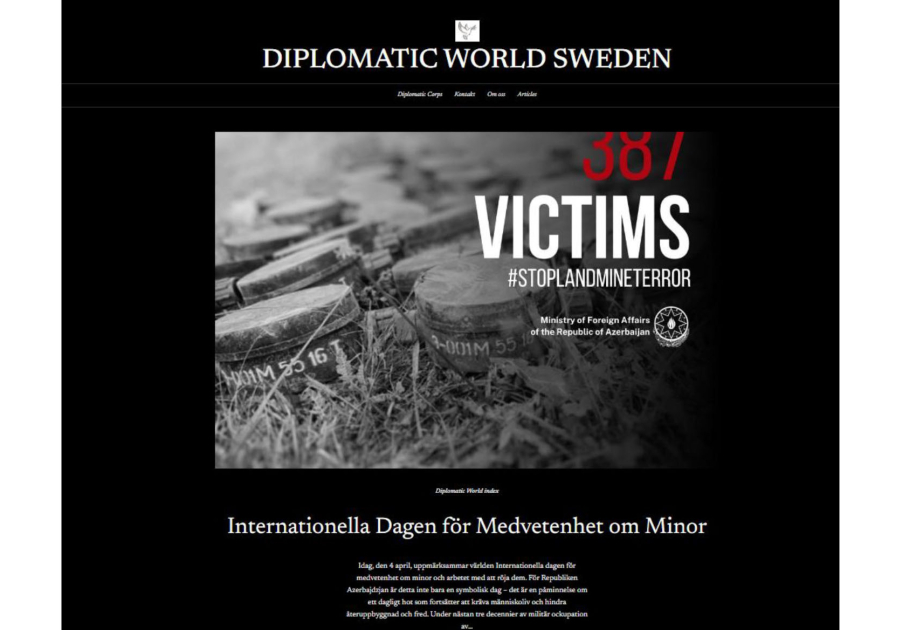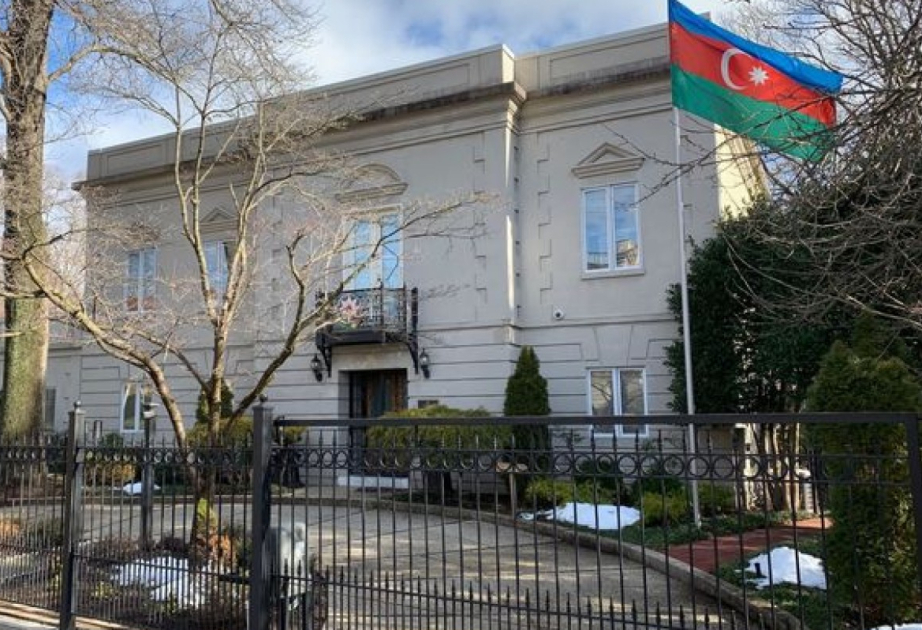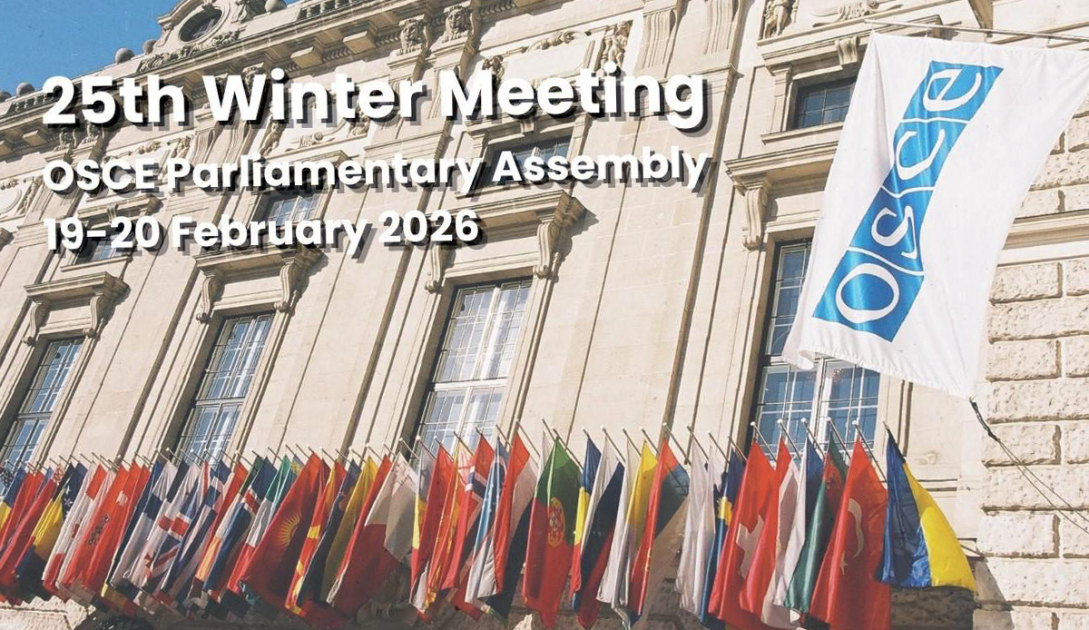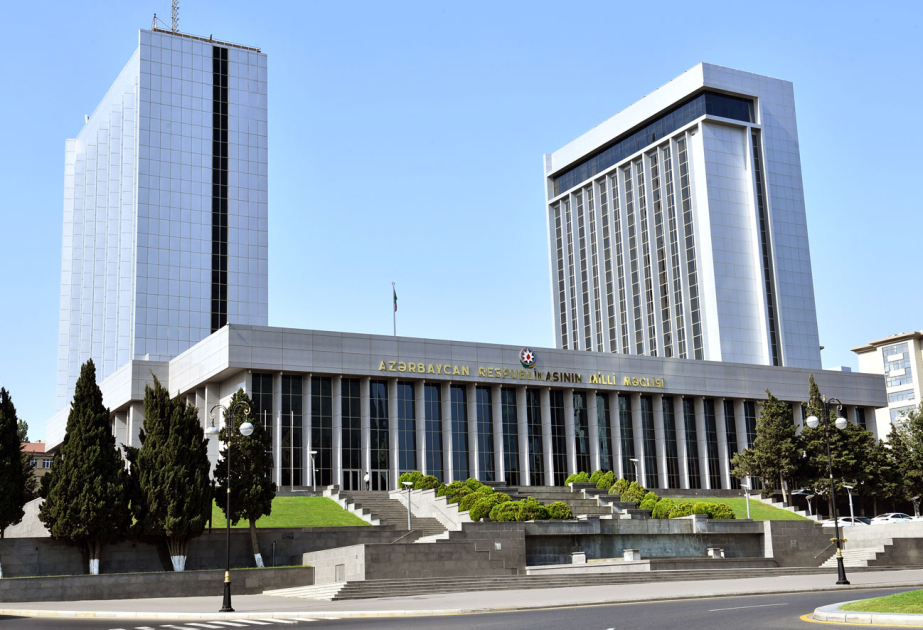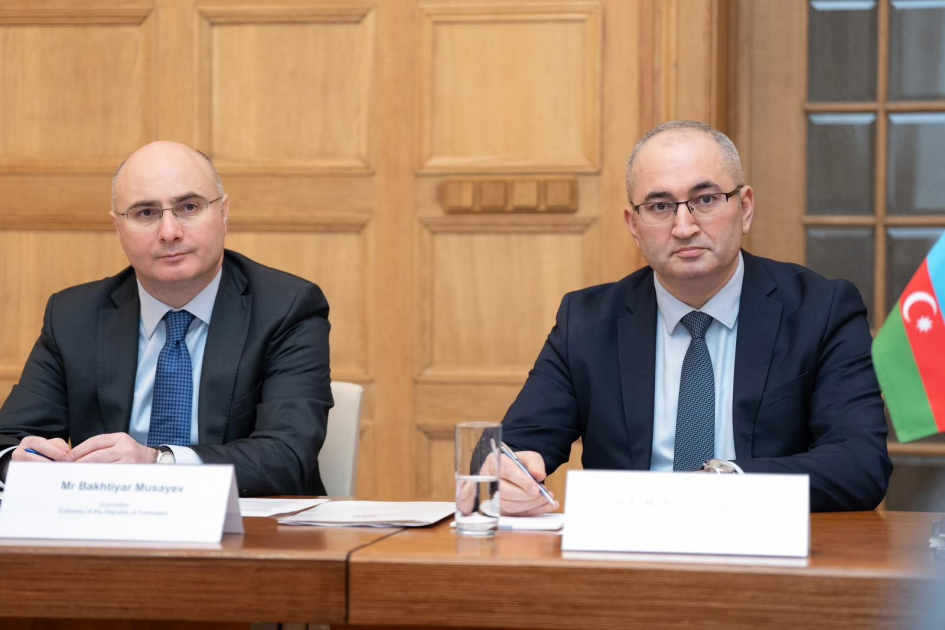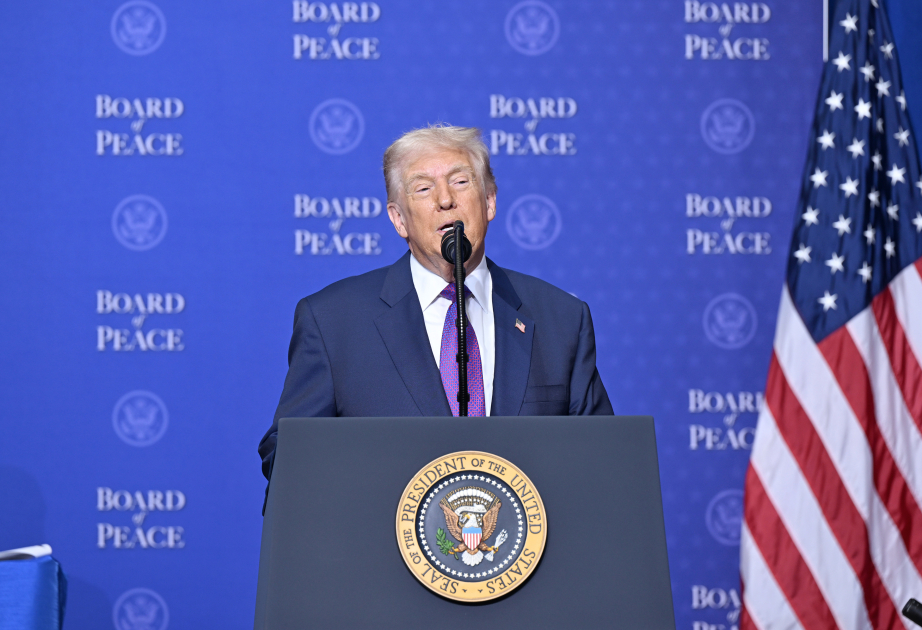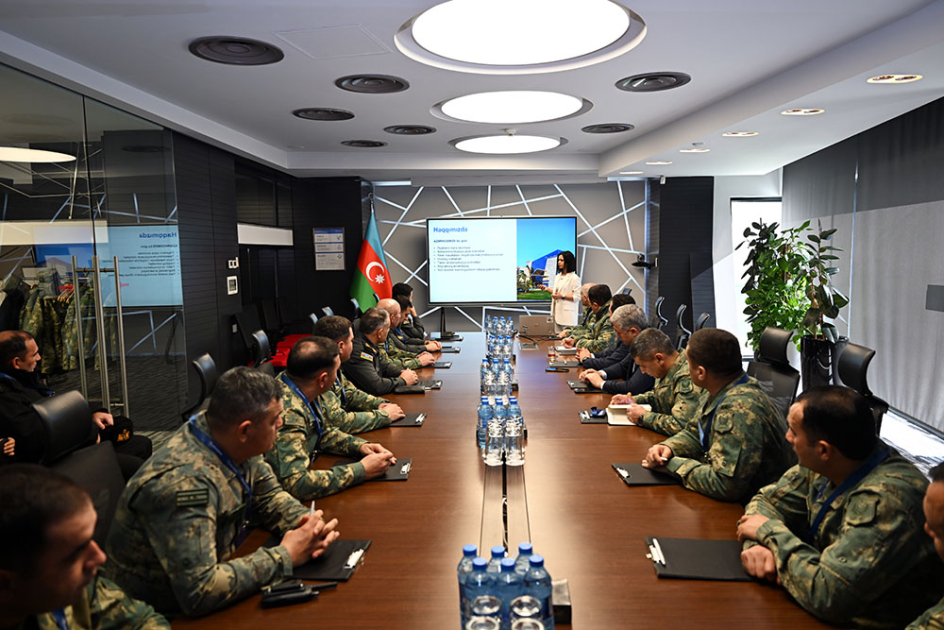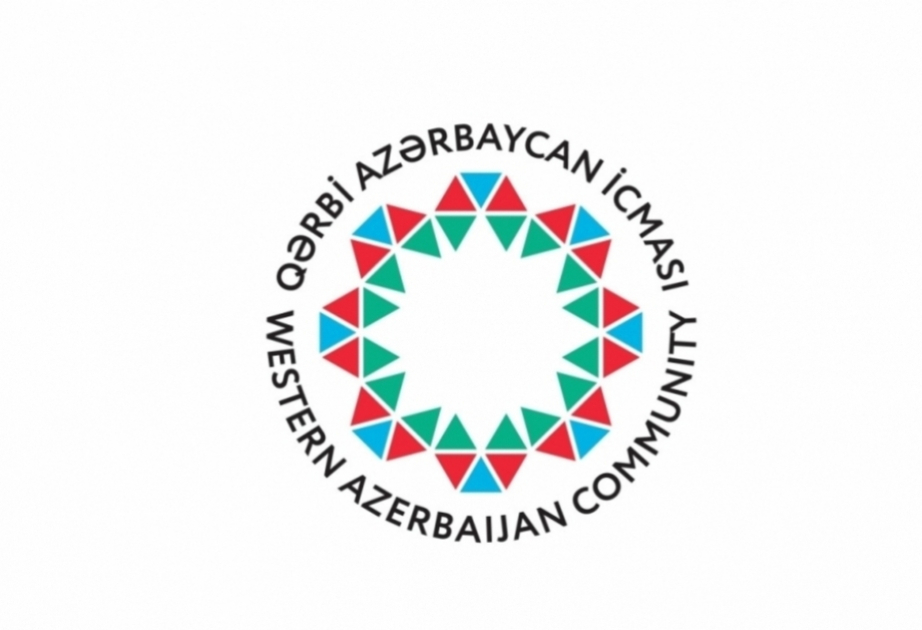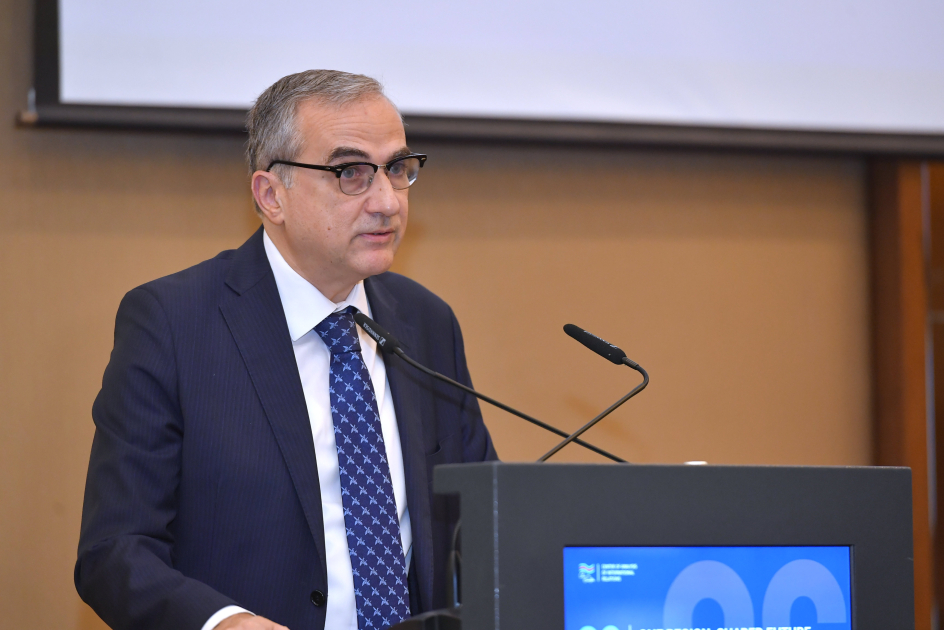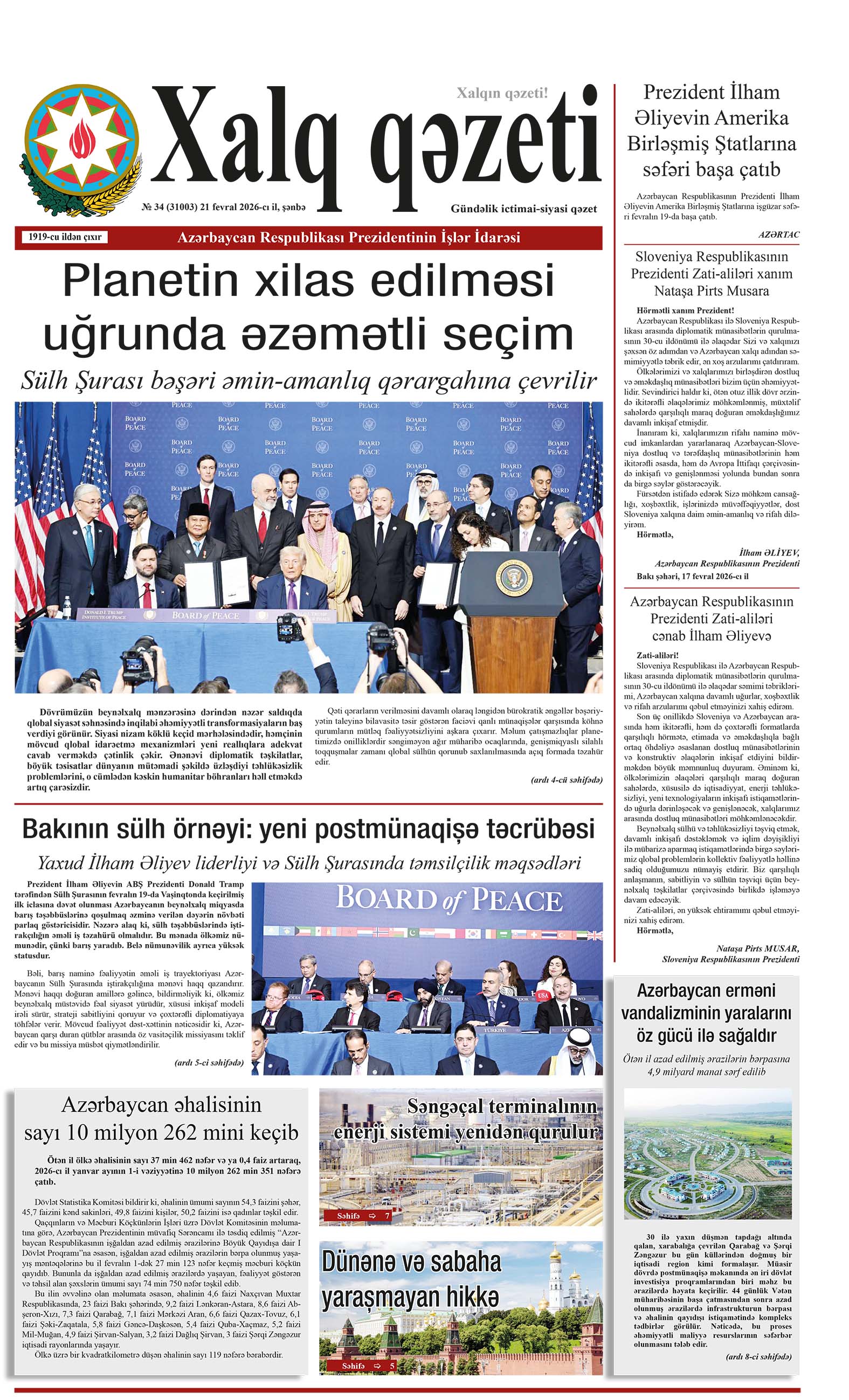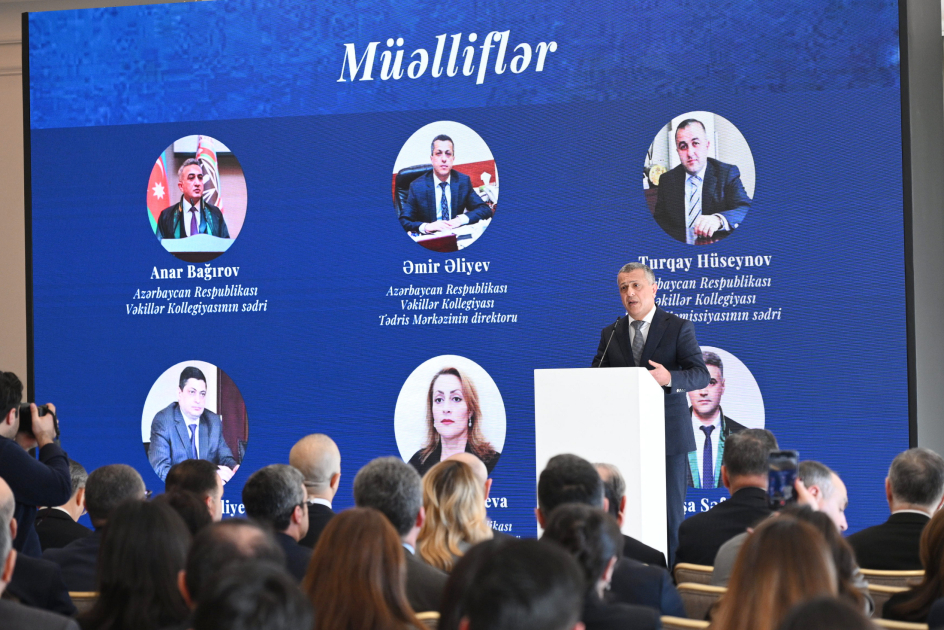On International Mine Awareness and Assistance in Mine Action Day (April 4), Diplomatic World Sweden published an article detailing the severe mine threat in Azerbaijan.
The article underscores that for Azerbaijan, April 4 serves as a daily reminder of the ongoing threat that claims lives and impedes post-conflict reconstruction.
"Nearly three decades of Armenian occupation have left over 13% of Azerbaijan’s territory contaminated with landmines and unexploded ordnance. Since the 2020 cessation of hostilities, more than 387 civilians have been killed or severely injured. In total, over 3,400 people, including hundreds of women and children, have fallen victim to mines since the conflict’s onset," the article states.
The publication emphasizes that mines not only pose a military threat but also significantly hinder the return of internally displaced persons, infrastructure rehabilitation, and environmental protection. Experts estimate that Azerbaijan is among the world's most heavily mined countries, with approximately 1.5 million mines still present.
Despite Azerbaijan's extensive demining efforts, involving thousands of specialists, specialized equipment, and mine-detection dogs, international assistance remains critically limited, accounting for less than 5% of deployed resources.
Furthermore, Armenia’s continued refusal to provide complete and accurate minefield maps severely obstructs humanitarian operations and the return of over 800,000 displaced individuals.
The article highlights Azerbaijan's active participation in international initiatives, including organizing conferences and proposing the inclusion of humanitarian demining as the 18th UN Sustainable Development Goal.
The author concludes with a call for the international community to provide tangible support—financial, technical, and humanitarian—to facilitate mine clearance and enable the safe return of displaced populations.
Diplomatic World Sweden primarily targets diplomats, politicians, and members of the diplomatic corps accredited in Sweden.


